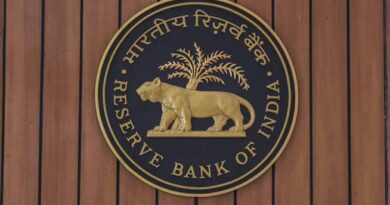FINTECHS:ISSUES AND CHALLENGES
Fintech is a combination of two words “financial” and “technology”. Any technology or app or software that provides a facility to people or businesses to access, manage, or gain insights into their finances digitally or carry out the financial transactions may be called as fintech.
With manifold increase in number of mobile users especially smart phones and availability of cost effective internet, fintechs have evolved very fast in last 10 years and has disrupted the entire financial services market through their tech driven innovative solutions. Fintechs also offer easier tracking, greater control, more options etc. On account of convenience, cost effectiveness, fast and ability to provide customized solutions the consumers have adopted it and started relying on these fintechs ranging from banking to investments and budgeting to funding.
Fuelled by investments and returns of existing fintechs, many players are entering into the market with the augmented features driven by artificial intelligence, machine learning and big data.
Two basic features are common in most of the fintechs which form foundation for any fintech company in delivering to services to their consumers-
Financial APIs: API (application program interfaces) connects consumers’ bank accounts to fintech apps and services safely and securely for sharing financial data, transfer funds, and verify their identities. Through the use of financial APIs these apps provide facility to transfer funds anywhere without visiting any bank branch or even website of the bank.
Mobile applications: Most fintech companies provide a mobile app which is a improvised and user friendly version of a website.Consumers can access their funds any time. It could be a digital banking app, a financial management tool, or an investment platform.
Regulatory Compliance
As fintechs are increasingly becoming more mainstream and disrupting traditional financial institutions, regulators have begun to take a closer and deeper look at their operations to ensure they comply with laws and regulations. Presently regulations seem to favour traditional banks on account of their traditional approach and high standards of corporate governance combined with well developed compliance culture leading to the transparency and safety of public money. For example, accepting deposits from general public is permitted to banks only.Fintech companies operate in a highly regulated environment, and keeping up with evolving regulations across different regions can be a significant challenge. There will always be regulation even companies leverage the traditional Fintech software that doesn’t use blockchain and other crucial technologies. Companies must adhere to a number of laws. Adhering to these regulations often requires substantial resources and can slow down the pace of innovation as companies need to hire a legal consultant and a dedicated system for tracking the regulatory updates.Paytm is the latest and classic example of regulatory action on account of non compliance and continued material supervisory concerns.
Cyber Security and Data Privacy
As fintech deals with sensitive financial data, the risk of cyber threats is immense. Ensuring robust cyber security measures to protect the customers is utmost for continuing customer trust. Cyber security risks such as hacking, data breaches, malware attacks and fraud can result in severe consequences. It would not only result in regulatory actions but also affect the brand image of the company. Fintech apps use integration between several applications. More integration requires more third party services and data exchanges which results in more opportunities for hackers to enter and steal the sensitive financial information which may be exploited by fraudsters.Fintech relies heavily on customer data. Building and maintaining trust of customers while handling their data responsibly is crucial. Vulnerabilities are much more discreet and impactful on users. On the one hand their money is at stake and on the other hand their personal data may also be leaked.With increasing concerns about data privacy, companies need to navigate complex regulations and reassure customers about their data security practices. Since most of the fintechs work in digital environment through apps and contactless platform, safety and security of digital identities becomes paramount.
Data ownership is a safety measure put in place by regulators. It refers to the authority structure within the company for creating, accessing, modifying and deleting the data. Security roles define the ownership of the data. Companies need to regularly update their security protocols to keep pace with ever changing digital environment and new vulnerabilities so as to keep customer data all the times and all the levels. It helps in minimizing the risks related to system breaches, legal liabilities and reputational losses along with financial losses. Performing penetration tests regularly after every new update and integration helps in minimization the risk of disruption by hackers. To safeguard the consumers against those risks companies put some data security solutions to make it more secure. These may include biometric authentication, two factor authorization, data encryption and real time alerts etc. Creating additional layers for security reduces the security risk simultaneously it may affect user experience as it would increase the response time, but companies need to strike a healthy balance between user experience and data security.
Market Competition and Customer Experience
Existing players pose several entry barriers by virtue of their scale, expertise and access to resources. The fintech industry is highly competitive and dynamic in nature as new technologies are frequently updated with innovative ideas. The presence of numerous players offering similar services makes it more complicated. Positioning and finding a space in an overcrowded market space may be very difficult if the company is not offering very unique which is scalable and sustainable. Acquiring and retaining customers in such a competitive landscape can be very difficult and costly. In order to retain the customers fintechs usually deploy several strategies. All these strategies mainly aim to improve customer experience. Companies use artificial intelligence for service personalization which filters services and products the user was interested previously.Personalization provides them only with the narrowed options they are looking for. Companies extensively use big data and data analytics for personalizing the experiences. However big data has its limitations as it is presently scratching the surface only. Fintechs also try to develop user friendly and attractive UI for gaining a competitive edge. Reward points and loyalty programs are also used extensively for acquiring and retaining the customers. Retention strategies may also be adopted through competitor analysis and consumer behavioral studies which provide deeper insights in current trends and latent needs of the consumers.
Funding and Investment
In a time when so many start ups are coming into the market very rapidly, standing out from the crowd to draw the attention of potential investors is essential to get adequate funding which ensures the freedom of development.Venture capital is one of the key elements that make a startup grow. However, attracting the right investors is still a challenge.Despite the potential for innovation, securing funding for fintech startups can be challenging, especially during economic downturns or when competing with established financial institutions. Finding sustainable business model that attracts investors while delivering value to customers is critical. Several questions are asked during the due diligence process such as problem solving capabilities of the app, inherent risk related to the business, market size and available opportunities. Investors also evaluate the capabilities and expertise of founders. It is also considered that how the fund will be utilized and whether it will add any value in order to achieve the product’s goals.
Ultimately the goal of every investor is to get exponential returns by investing in a new idea, hence a presentation on detailed plan with realistic and achievable estimations along with a business model and strategy that differentiates the company from so many similar and existing players, play a key role in convincing the investors.
Technological capabilities and Disruption
Fintech companies provide solutions by depending on several new age technologies such as Cryptocurrency, Block chain, IoT, cloud computing, artificial intelligence, machine learning, data analytics and big data. Though these technologies have not been utilized to their full potential as lot more is to be explored.
In fintech industry the technical hand is required to be expert on technology and finance sector front. It is quite challenging to find such experts as all the companies are looking for such techies resulting in increased competition. Since all the companies do not have an in house team for building an app hence they tend to outsource it for developing a user friendly app. Building a team of professionals involves time and cost for recruitment and training while outsourcing helps in reducing costs significantly and it also allows to meet the timeline for achieving goals efficiently.
Moreover rate of technological disruption is very high. It completely changes the way things are done. Company may come to know that there a new technology has been introduced well before it could implement its earlier app with an old technology. New age technology is well known and implemented by very few tech elites. It is quite challenging for other developers to keep pace with it. Sometimes it is so fast that even consumers do not understand and embrace it completely.
Apart from these key challenges fintechs also face issues related to integrating new fintech solutions with traditional financial institutions as compatibility issue often arise which makes the process more complicated and costly. Additionally scaling up the services rapidly without compromising reliability and security is quite difficult. It requires substantial investment and technical expertise to build the matching infrastructure. Ensuring inclusive access to these services remains a challenge. Factors like digital literacy, access to technology, and regulatory barriers can limit the reach of fintech solutions. Encouraging adoption of fintech solutions among users who may be accustomed to traditional banking methods requires effective education and awareness campaigns. Many potential users may be hesitant due to a lack of understanding or trust in these new technologies.
As the fintechs are evolving with the customer needs, companies will continue to embrace new technologies and innovative ways to provide personalized services which enhance the customer experience within the ambit of regulatory framework. With increased awareness and adoption rate among consumers companies will strive to scale up their operations to reach the masses which would generate adequate revenue for them for building infrastructure and thereby providing more choices at reduced costs rapidly and securely.




